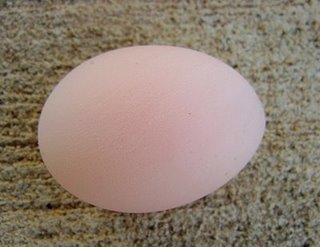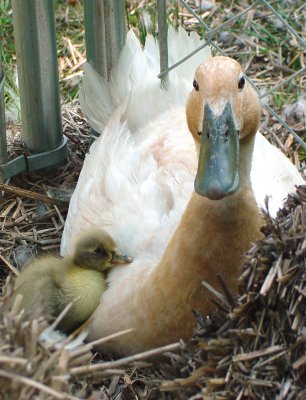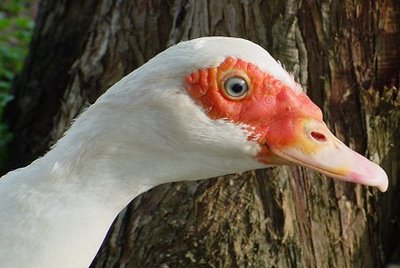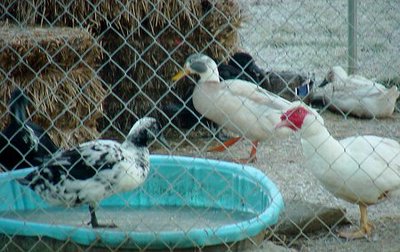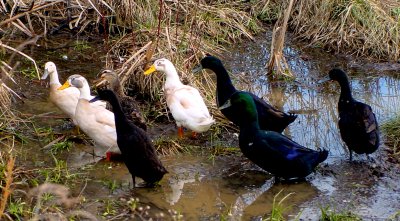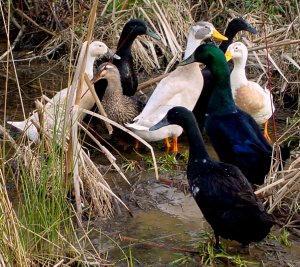I had to work the garden hotline yesterday and was exhausted by the time I got home. It was a day full of
characters, which was interesting but not exactly relaxing. So, no time for new pictures, but here are a few more of the ducks.

My original description of Duckie's top-knot/crest/pouf is
here. Basically it's a skull deformity. (But a cute one.)
Here are some views from other angles. Yes, it's very soft! But the capturing nearly gives her a heart attack, so we don't feel it too often.

I mentioned the other day that male ducks like to grab onto the crest for umm, balance, so she'd lost a few feathers. Here is the other female Runner duck, Runt, who's missing a few feathers herself.

Poor dear. Chickens do this too, by the way. Roosters seem to know their business better, though. It's quickly over. Ducks I've observed in the wild don't mess around either.
Our ducks however... well, maybe they need a how-to video. Boss-duck, and especially Tuxedo, sometimes just walk back and forth across the backs of the female ducks. Up and down, circle around, back up, back down, etc. Quacking the whole time but not really, well,
doing anything.
Often the female gets tired of waiting I guess, or tired of being stepped on, and manages to escape. Sometimes they are caught again within a few steps, and the process starts all over again.
I'm not sure if all domestic ducks are this way, or just Indian Runner ducks. Or just ours.























